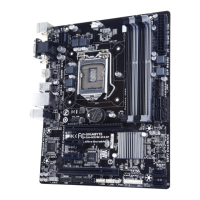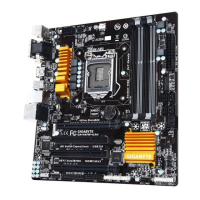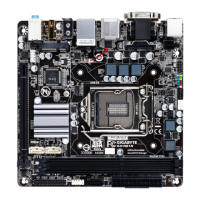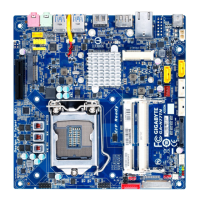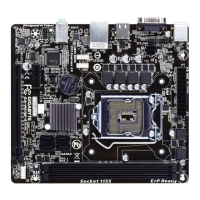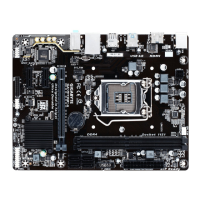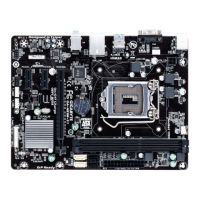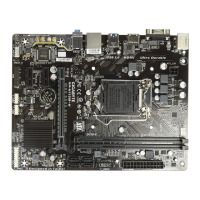- 34 -
C-2.ConguringLegacyRAIDROM
Enter the Intel
®
legacyRAIDBIOSsetuputilitytocongureaRAIDarray.Skipthisstepandproceedwiththe
installationofWindowsoperatingsystemforanon-RAIDconguration.
Step:
1. After the POST memory test begins and before the operating system boot begins, look for a message which
says"Press<Ctrl-I>toenterCongurationUtility".Press<Ctrl>+<I>toentertheRAIDCongurationUtility.
2. After you press <Ctrl> + <I>, the MAIN MENU screen will appear. If you want to create a RAID array, select
Create RAID Volume in MAIN MENU and press <Enter>.
3. After entering the CREATEVOLUMEMENUscreen,enteravolumenamewith1~16letters(letterscannotbe
specialcharacters)undertheName item and press <Enter>. Then, select a RAID level. RAID levels supported
includeRAID0,RAID1,RAID10,andRAID5(theselectionsavailabledependonthenumberofthehard
drivesbeinginstalled).Press<Enter>toproceed.
4. Under Disks item, select the hard drives to be included in the RAID array. If only two hard drives are installed,
theywillbeautomaticallyassignedtothearray.Setthestripeblocksizeifnecessary.Thestripeblocksizecan
besetfrom4KBto128KB.Onceyouhaveselectedthestripeblocksize,press<Enter>.
5. Enter the array capacity and press <Enter>. Finally press <Enter> on the Create Volume item to begin creating
theRAIDarray.Whenpromptedtoconrmwhethertocreatethisvolume,press<Y>toconrmor<N>tocancel.
6. When completed, you can see detailed information about the RAID array in the DISK/VOLUMEINFORMATION
section,includingtheRAIDlevel,stripeblocksize,arrayname,andarraycapacity,etc.ToexittheRAIDBIOS
utility, press <Esc> or select 6. Exit in MAIN MENU.
InstallingtheSATARAID/AHCIDriverandOperatingSystem
With the correct BIOS settings, you are ready to install the operating system.
InstallingtheOperatingSystem
As Windows 7 already include Intel
®
SATA RAID/AHCI driver, you do not need to install separate RAID/AHCI
driver during the Windows installation process. After the operating system is installed, we recommend that you
installallrequireddriversfromthemotherboarddriverdiskusing"XpressInstall"toensuresystemperformance
and compatibility. To install Windows 8.1/8, refer to the steps below. Step:
1. Copy the IRST folder under BootDrv in the driver disk to your USB thumb drive.
2. Boot from the Windows 8.1/8 setup disk and perform standard OS installation steps. When the screen requesting
you to load the driver appears, select Browse.
3. Insert the USB thumb drive and then browse to the location of the driver. The locations of the drivers are as follows:
Windows32-bit:\iRST\32Bit
Windows64-bit:\iRST\64Bit
4. When a screen as shown, select Intel(R) Desktop/Workstation/Server Express Chipset SATA RAID
Controller and click Next to load the driver and continue the OS installation
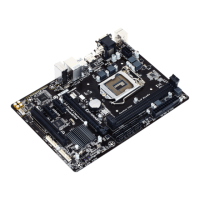
